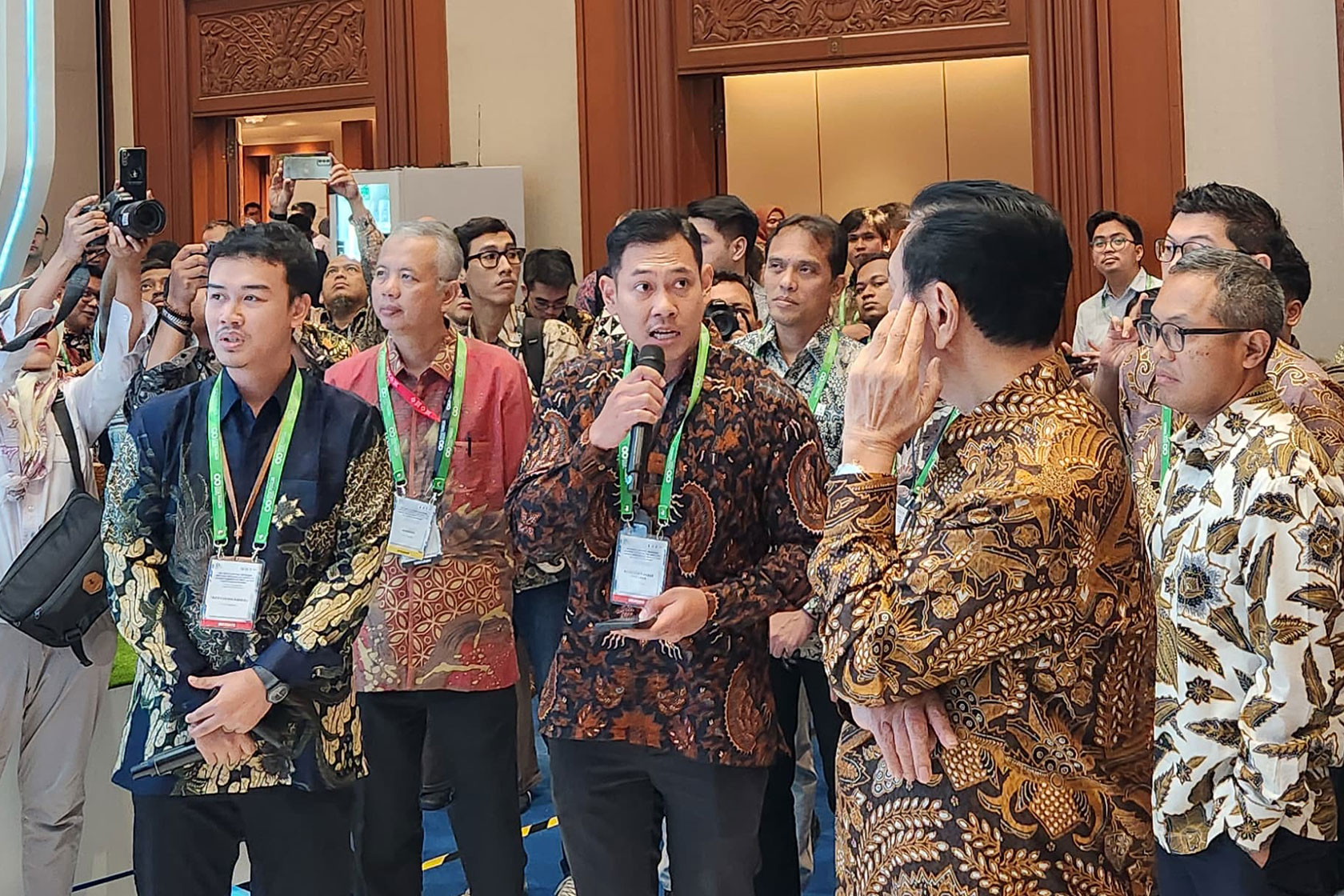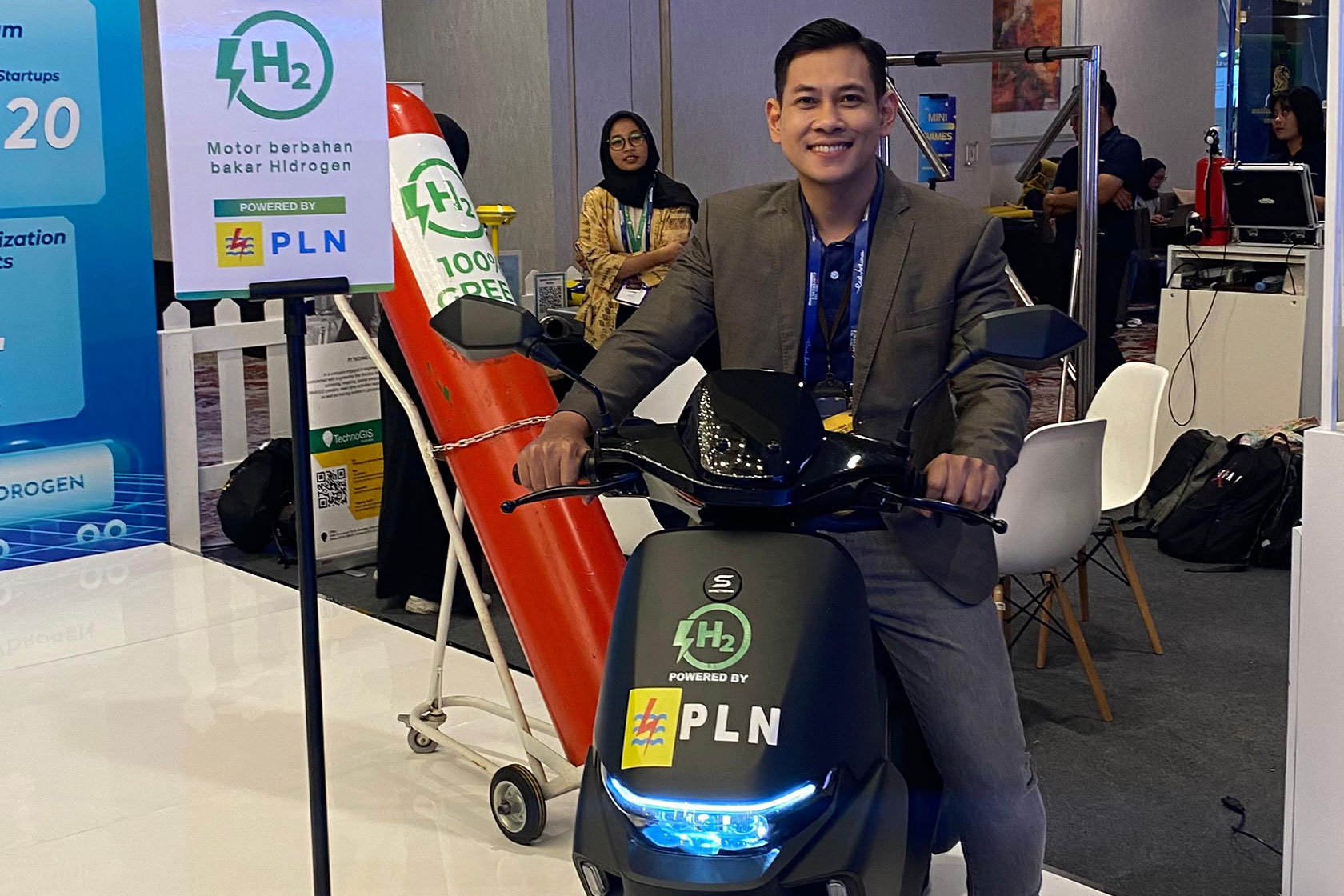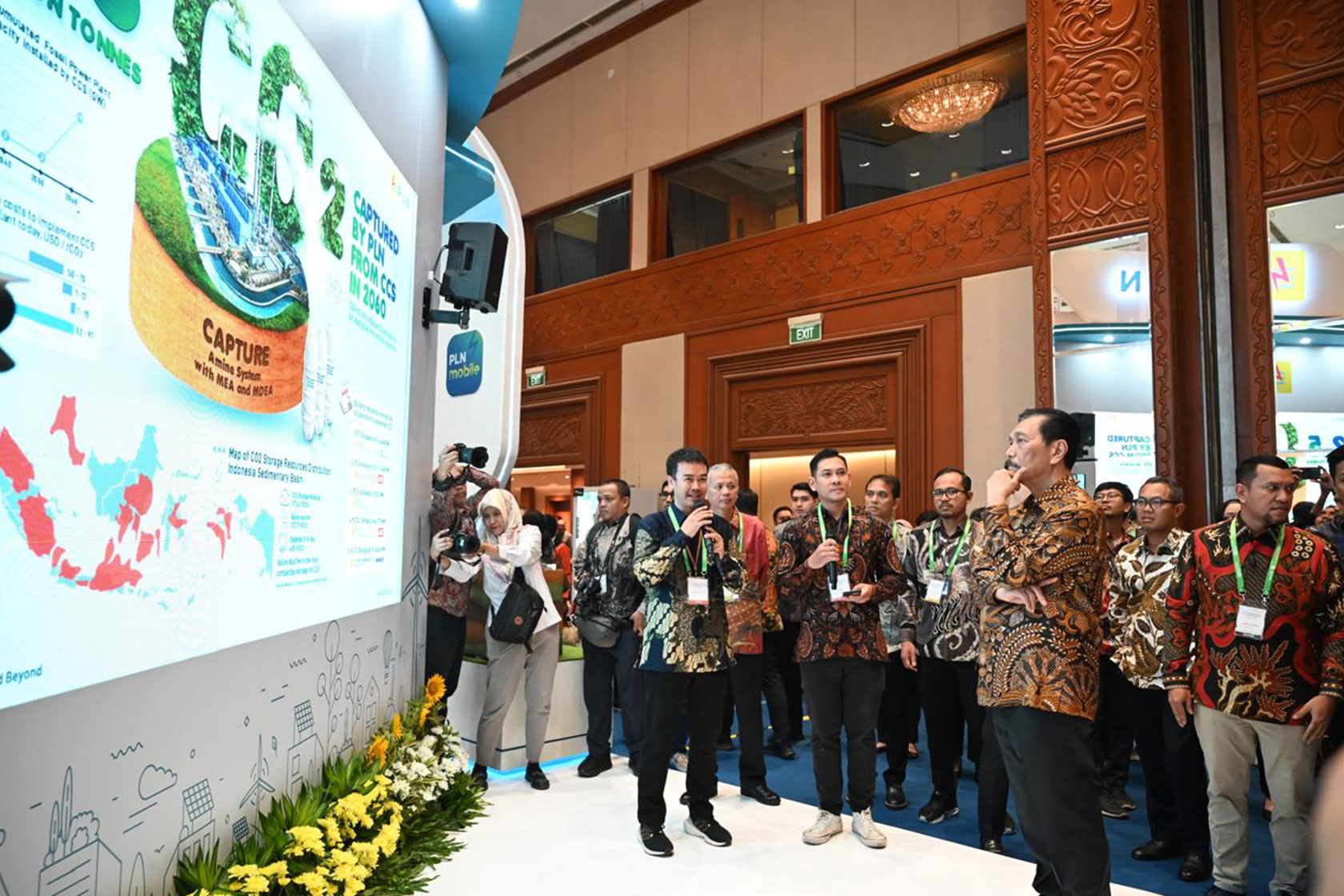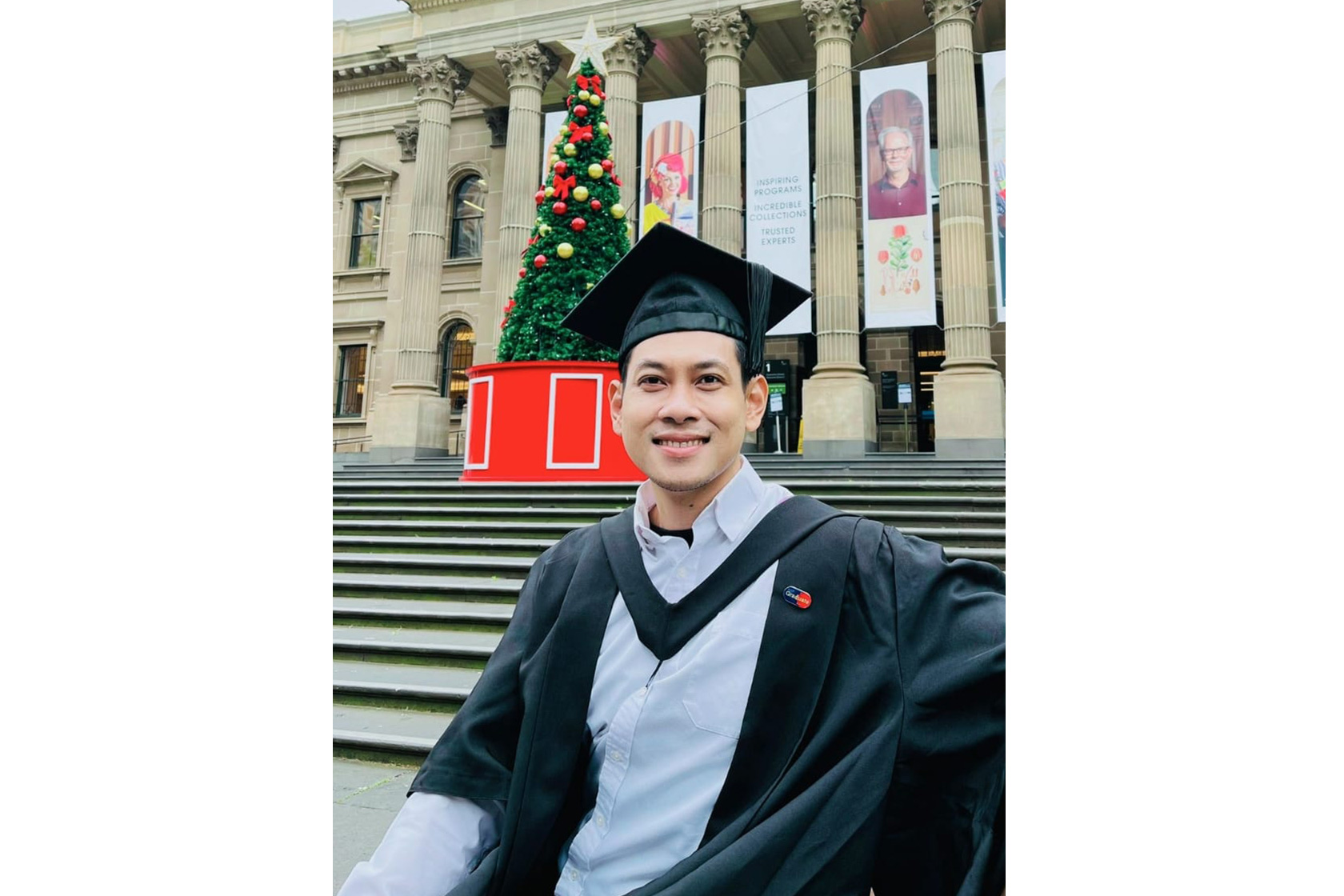The desire for Indonesia to gain an edge in renewable energy has motivated Rodzi Gusti Akbar Sarjana, an employee of the State Electricity Company (PLN), to visit Australia twice to study.
Rodzi's first visit to Australia was in 2018 when he participated in the Australia Awards Short Course on Renewable Energy Technologies and Policy delivered by Griffith University.
At the time, Rodzi was working at PLN's Nusa Tenggara Timur (NTT) regional unit. During the Short Course, Rodzi had the opportunity to learn about various renewable energy technologies, including biofuels, solar, wind, and hydro.
‘I saw that Indonesia has significant potential to develop renewable energy. I felt the urgency to further enhance my skills and knowledge about renewable energy by studying in Australia,’ Rodzi explained.
He decided to pursue a Masters in Sustainable Energy Engineering at RMIT University and was accepted in 2020 through an Australia Awards Scholarship. One of the topics that caught Rodzi's attention was hydrogen as a renewable energy source, specifically green hydrogen, a future eco-friendly fuel.
‘Green hydrogen’ refers to hydrogen that is extracted using a method that doesn’t produce greenhouse gas emissions.[1] Australia aims to become a global leader in hydrogen by 2030, both in terms of exports and the decarbonisation of Australian industries.[2]’
‘In 2020, there were still very few people in Indonesia paying attention to the development of green hydrogen. This situation motivated me to delve into green hydrogen before others,’ Rodzi explained.
From Masters Student to a Leading Role in Hydrogen
During his two years of study at RMIT University, Rodzi enjoyed access to excellent hydrogen laboratory facilities and learning resources. However, he couldn't fully experience student life in Australia, particularly in terms of networking, due to the COVID-19 pandemic.
‘I was impressed by how actively students participated in the learning process in Australia. Even though most of the classes were conducted online, discussions remained lively,’ Rodzi explained.
‘Students in Australia aren't afraid to share their ideas, even if those ideas might initially seem far-fetched. They still have the courage to speak up.’
After completing his studies in Australia in 2021, Rodzi was promoted to PLN's headquarters in Jakarta. He was tasked with overseeing several new technologies that PLN intended to implement, including carbon capture, hydrogen, and nuclear technologies.
‘I was fortunate to be entrusted as the person in command for hydrogen and carbon capture because it aligned with my research and studies in Australia,’ Rodzi said.
Contributing to PLN’s Expansion in Renewable Energies
In early 2023, an internal reorganisation required Rodzi to move to a unit responsible for mapping out new business ventures at PLN. As a senior officer in this division, Rodzi became a key player in PLN's plans to expand its business into green hydrogen production.
By the end of the year, PLN had established 22 green hydrogen plants, utilising geothermal and solar power plants already owned by PLN, along with renewable energy certificates.[3]
PLN hasn’t yet commercialised the green hydrogen it produces. However, it showcased its potential earlier this year by powering events such as a Toyota carbon-neutral exhibition and the Green Hydrogen Energy Summit 2025, held in Jakarta.
A Vision to Integrate Solar, Green Hydrogen and Desalination
When Rodzi was choosing a research topic for his masters studies, he looked for something that would have an impact on PLN.
Through his coursework and discussions with Professor Bahman Shabani, a renewable energy hydrogen specialist at RMIT University, Rodzi decided to research how to improve the efficiency of solar power plants (PLTS) by using them to produce green hydrogen while also serving as a desalination device.
‘My case study focused on the solar power plant located on Semau Island, NTT. By designing a PLTS integrated with hydrogen storage, the heat generated during hydrogen production can be used for desalination through solar thermal desalination methods,’ Rodzi explained.
‘I believe my research was highly visionary and has the potential to be further developed at PLN, especially since PLN has many solar power plants on islands across Indonesia.’
PLN is now exploring the feasibility of using the Semau and Medang Island PLTS in West Nusa Tenggara as pilot projects for implementing its research findings.
‘If successfully implemented, it’s possible that the same method will be applied to other solar power plants scattered across various islands in Indonesia,’ Rodzi stated, adding that he intended to stay in contact with Prof Shabani about his progress.
An Urgent Need to Chase an Emissions Reduction Target
In 2022, Indonesia was generating only 20% of its electricity from renewable sources, far behind the global average of 39%, according to analysis by UK-based energy think tank, Ember.[4]
If allowed to pursue further studies at the PhD level, Rodzi would be glad to continue exploring green hydrogen or carbon capture research.
‘Indonesia has a target to achieve net zero emissions by 2060, so we need to start developing green hydrogen immediately,’ he said. ‘It’s not just about production; we also need to consider the supporting infrastructure, storage facilities, and distribution systems. There’s a lot we need to prepare.’
Rodzi stressed that Indonesia couldn’t afford to be complacent about developing green hydrogen.
‘If we don’t act quickly, we’ll lose momentum and fall far behind other countries.’



[1] https://www.csiro.au/en/news/all/articles/2021/may/green-blue-brown-hydrogen-explained
[2] https://www.dcceew.gov.au/energy/hydrogen
[3] https://web.pln.co.id/media/siaran-pers/2024/02/pertama-di-indonesia-pln-operasikan-stasiun-pengisian-hidrogen-untuk-kendaraan
[4] https://ember-energy.org/countries-and-regions/indonesia/#:~:text=Indonesia%20generated%2020%25%20of%20its,Explore%20the%20data


 Rodzi Gusti Akbar Sarjana: Designing a Visionary Renewable Energy Facility
Rodzi Gusti Akbar Sarjana: Designing a Visionary Renewable Energy Facility
